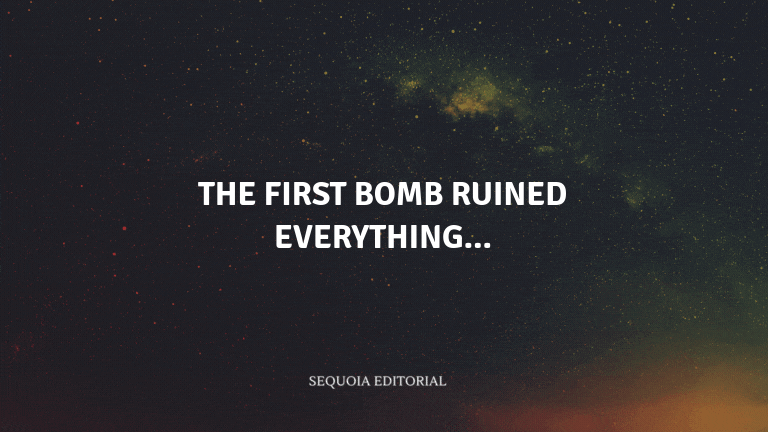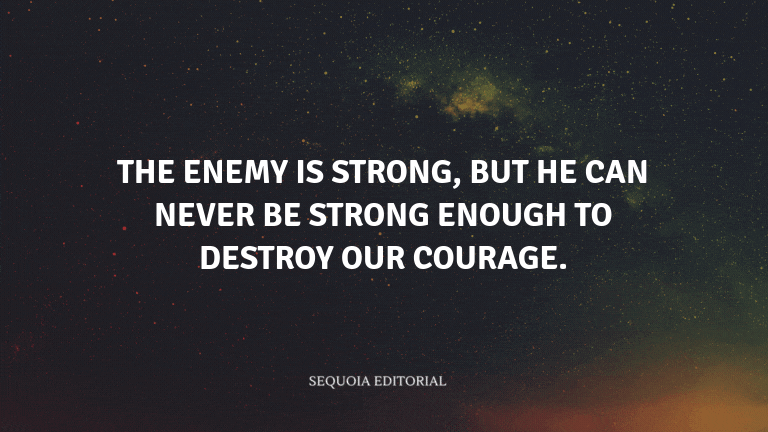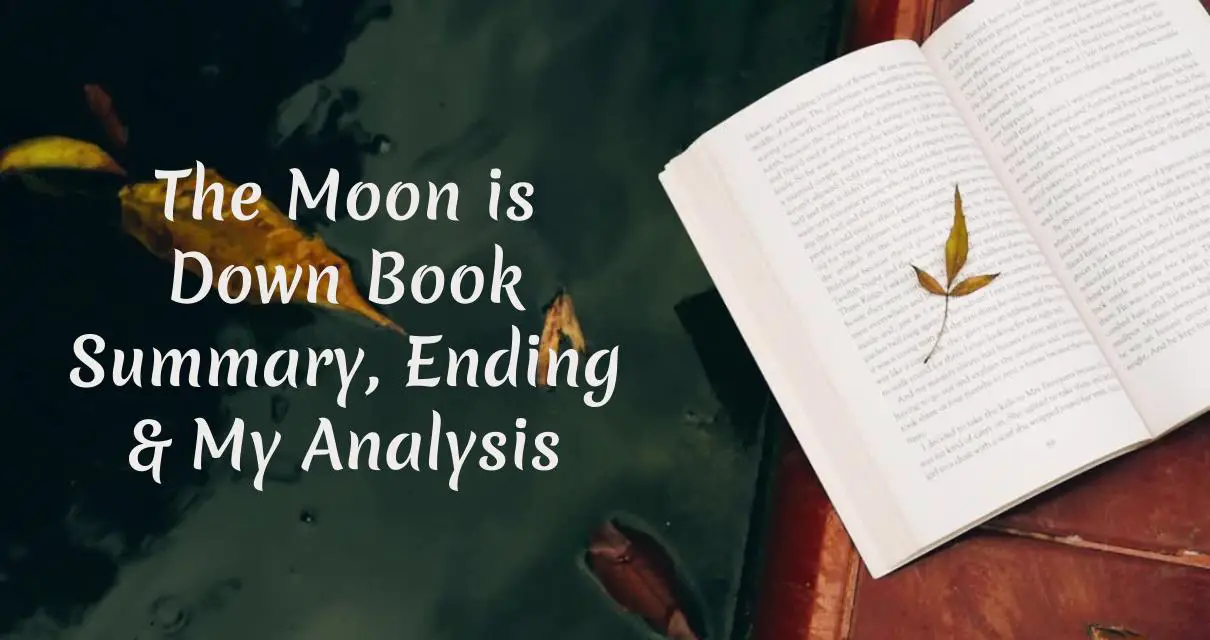The Moon Is Down is about the occupation of a small town in Northern Europe during World War II. The story revolves around the townspeople's resistance to the occupation and the struggles they face under the rule of the enemy. The emotional and psychological impact of war on both the occupiers and the occupied is central to the narrative.
Table of Content
The Moon Is Down Book Summary
The small, peaceful town is suddenly disrupted by an enemy invasion. Explosions rend the air and the Mayor's home is destroyed. The townspeople are shocked, and the Mayor must face the enemy, Colonel Lanser.
Colonel Lanser and his troops take over the town, but the Mayor and his people refuse to submit. Lanser tries to understand the town's resistance and establishes a curfew, but his efforts are met with hostility.
Dr. Winter, the town's philosopher, converses with Lanser and reflects on the futility of war. Both men recognize the humanity in each other, despite being on opposite sides.
The townspeople, led by the Mayor, engage in a campaign of passive resistance. They sabotage the enemy's efforts and refuse to cooperate or show fear.
Lanser begins to understand the depth of the townspeople's spirit and the impossibility of subduing them by force alone. He is disheartened by the losing battle against the will of the townsfolk.
Anson, a young soldier, is affected by the kindness and trust the townspeople show him. He begins to question the purpose and morality of the occupation.
The situation escalates when the townspeople kill a soldier in an act of defiance. The enemy retaliates, executing several hostages, including the Mayor.
The Mayor's death galvanizes the townspeople, and they plan a revolt. However, the news of an uprising in England forces the enemy forces to abandon the town, marking the end of the occupation.
With the departure of the enemy, the town begins to rebuild. Dr. Winter reflects on the lessons they've learned and the value of freedom and resistance.
Lanser, now a defeated man, leaves the town with a sense of respect for the Mayor and his people. The narrative closes with the reflection that the town will never forget the occupation.
The Moon Is Down Quotes
- The first bomb ruined everything...

- The enemy is strong, but he can never be strong enough to destroy our courage.

The Moon Is Down Ending Explained
At the end of The Moon Is Down, the resistance of the townspeople culminates in a successful revolt against the occupying forces.
Tragically, the occupation claims the life of the Mayor, who becomes a martyr for the town's freedom. His death serves as a catalyst, uniting the townspeople against the enemy.
The departure of the enemy signals a new beginning for the town, as they rebuild and reflect on the lessons learned through their struggle for independence.
Characters in book The Moon Is Down
- The Mayor: The dignified and respected leader of the town, who faces the difficult task of dealing with the enemy's demands while seeking to protect his people.
- Colonel Lanser: The pragmatic and thoughtful military leader of the occupation forces, he is in charge of maintaining order in the town and negotiating with the Mayor.
- Mrs. Molly Morden: A strong-willed woman and the only female character with a speaking role, she represents the resilience and defiance of the townspeople.
- Dr. Winter: The town's doctor who is also a philosopher, he offers a voice of reason and courage to the Mayor and the townspeople.
- Anson: A young soldier who undergoes a transformation as he grapples with his role in the occupation.
- Townspeople: A diverse group of men and women who react to the occupation in different ways, they collectively illustrate the impact of war on civilians.
Key Lessons
- Resilience in Adversity: The ability to endure and overcome difficult situations is a testament to the strength of the human spirit.
- Unity is Power: When people come together for a common cause, they can achieve more than they ever could alone.
- Morality in Conflict: War often blurs the lines of right and wrong, forcing individuals to confront their personal ethics in extreme situations.
- The Complexity of Leadership: True leadership requires a delicate balance of strength and compassion, especially in times of crisis.
- Freedom's Value: The true value of freedom is only fully realized in its absence, prompting a deeper appreciation for the liberties we often take for granted.
My Personal Opinion
Is The Moon Is Down worth reading? I would say yes. I found it to be a compelling and thought-provoking story that resonates deeply with the human experience of war.
I was captivated by the juxtaposition of the occupiers and the occupied, and how the narrative depicted the impact of conflict on both sides. The book's concise and powerful style conveys a complex story with clarity and depth. On the downside, I wished for more character development, particularly among the secondary figures, to further enrich their personal struggles and growth.
I believe this book is a must-read for those interested in exploring the psychological and moral dimensions of war. Its universal themes make it relevant to any historical period or contemporary conflict, and I would recommend it to readers who appreciate introspective narratives that delve into the nature of humanity during times of turmoil.

